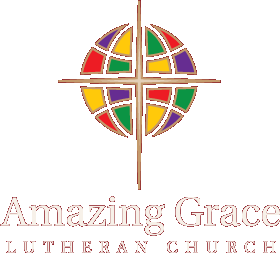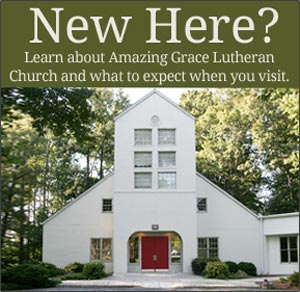Every year at this time the church enters the season of Lent. Lent is the six weeks before Easter, its name refers to the lengthening of days during the spring. Lent brings many traditions with it, such as individuals giving up something and/or fasting. The intention behind Lenten practices is to focus on one’s need for God through intentional prayer, repentance, and abstinence/self-denial.
 This emphasis on prayer, repentance and self-denial is reflected in worship as well. In Lent we refrain from singing or saying they joyful “alleluia”, holding back until Easter Sunday. Each worship service will feature corporate confession and absolution. The mood and themes of Lent are more somber, seeking to our human brokenness and our need for Christ. This year for Lent we as a congregation will be focusing on the Book of Psalms. Each Sunday we will consider a different type of Psalm and how these ancient words shape and reflect our walk with God. Members will be invited to read the Psalms each day throughout the forty-days of Lent.
This emphasis on prayer, repentance and self-denial is reflected in worship as well. In Lent we refrain from singing or saying they joyful “alleluia”, holding back until Easter Sunday. Each worship service will feature corporate confession and absolution. The mood and themes of Lent are more somber, seeking to our human brokenness and our need for Christ. This year for Lent we as a congregation will be focusing on the Book of Psalms. Each Sunday we will consider a different type of Psalm and how these ancient words shape and reflect our walk with God. Members will be invited to read the Psalms each day throughout the forty-days of Lent.
What are the Psalms?
Most know of Psalms because they feature prominently during the readings in worship, usually read responsively. The Psalm is the congregation’s response to the First Reading. But Psalms are much more than that “thing-read-after-the-First-Reading-but-mysteriously-isn’t-referred-to-as-the Second-Reading”. The Psalms were the original hymnbook of the Jewish faith. We Lutherans have our hymnal, the Lutheran Book of Worship, which contains prayers and hymns, and the Jews have the Psalms. The Psalms employ language about God that resonate deeply with people. For example, ask most Christians about their favorite scripture passages and Psalm 23 is regularly named.
Psalms FAQ:
Who? The Psalms were written by King David and many others.
When? The Psalms were written in the times between 11th Century BC and 6th Century BC.
Where? The Psalms are understood to be set mostly in Jerusalem.
What? The Psalms fall under the Biblical category of “Wisdom” and are songs of faith.
Why? The Psalms purpose is for God’s people to express hope in the Lord using prayers and praises in worship.
What kind of Gospel themes (Good News) are there in the Psalms?  The Psalms portray the Lord’s saving righteousness and steadfast love, God’s protection and activity of providing for his people and prophesies about the messiah.
The Psalms portray the Lord’s saving righteousness and steadfast love, God’s protection and activity of providing for his people and prophesies about the messiah.
What kind of Law themes (challenges that lead us to Christ) are there in the Psalms? Persecutors assailing God’s people, suffering, waiting for God to deliver, living in exile.
What challenges are there to reading the Psalms? Modern readers are often unsure how to interpret language in the Psalms concerning “the wicked”, the “enemy”, and occasional instances of violence. Often times reading the Psalm from the point of view of Jesus Christ helps to make sense of those passages.
What are the benefits of reading the Psalms? The Psalms give us words to express to God both our faith and our burdens. These are ancient words that have stood the test of time, still shaping Christians today.
40 Days of Psalms
This Lent you are invited to join the rest of our community in reading the Psalms together. Reading schedules will be distributed for all to follow.
Please sign up for the 40 Days of Psalms on the bulletin board in the Narthex.
Each Wednesday after Lenten worship, I will lead a discussion on the week’s Psalms.
We are emphasizing the Psalms this Lent because they give us a way to pray. The purpose of this series isn’t to gain head-knowledge on Psalms. Instead, this tour of the Psalms offers you a way to make a small group of Psalms to claim as your own.
In Christ,
Pastor Jason Talsness
Further Resources on the Psalms:
Answering God: The Psalms as Tools for Prayer by Eugene Peterson
Psalms: The Prayer Book of the Bible by Dietrich Bonhoeffer
Psalms for Sojourners by James Limburg
Praying with the Psalms: A Year of Daily Prayers and Reflections on the Words of David by Eugene Peterson
Posted February 4, 2013 by Amazing Grace Lutheran Church | Pastors Corner | Permalink |




